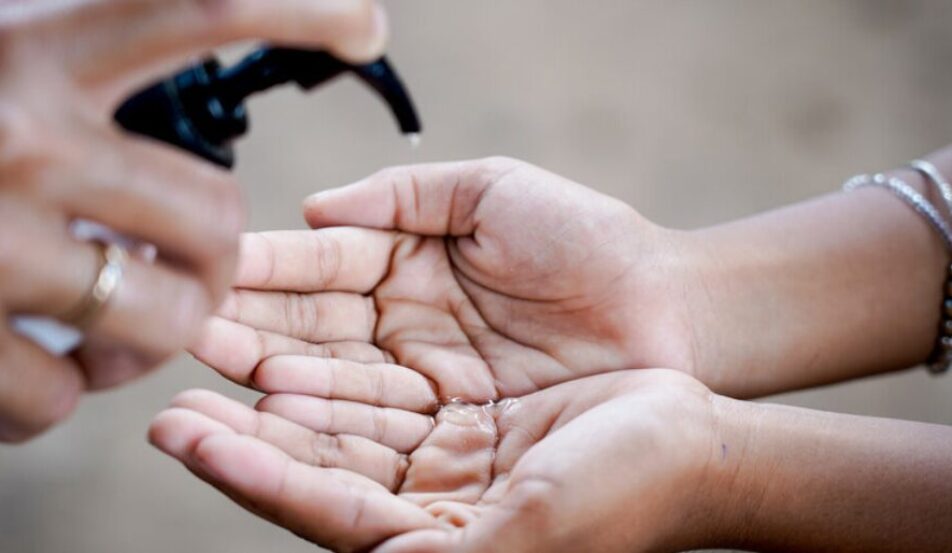How does hygiene help stop the spread of infectious disease?
Infectious diseases can be spread rapidly through the direct transfer of the bacteria, virus or germ from one person to another.
We are all familiar with the health guidelines implemented by governments around the world to stem the spread of COVID-19, including hand-washing, physical distancing and wearing face masks.
These practices, however, are just as effective against other infectious diseases, ones we’ve lived with for many years, including the common cold and winter flu.
Here we explore how effective hygiene practices can help prevent the spread of infectious disease, and highlight some ways to maintain good hygiene.
What is an infectious disease?
An infectious disease differs from a non-infectious disease because it is caused by pathogenic microorganisms such as bacteria, viruses, fungi or parasites. These carry the infectious disease and can be passed on from person to person.
A non-infectious disease, such as cancer or asthma, cannot be passed on from person to person. Instead, they are caused by factors such as genetics, malnutrition, environment and lifestyle.
Preventing the transmission of an infectious disease can only be achieved by stemming the person-to-person spread.
What is the role of personal hygiene in preventing infectious disease outbreaks?
Hygiene practices reduce the risk of transmission by killing the germs and microbes that carry the disease. Soaps, sanitisers and other hygiene products contain ingredients and chemicals that, while harmless to humans, kill these microorganisms.
Good personal hygiene should be adopted as part of daily life to stay healthy to prevent contracting infectious diseases. There is no guarantee, however, that hygiene habits will work with the same degree of effectiveness against every infectious disease, particularly mutations.
How can hygiene be used in the management of infectious disease outbreaks?
Not only is proper hygiene effective in preventing an infectious disease outbreak, it can assist in the management of an outbreak. When everyone is encouraged to practise good hygiene, the rate at which the infectious disease can spread slows down rapidly.
If good hygiene becomes routine, the microorganisms aren’t able to transfer, and become less threatening to the community as active cases of the disease reduce.
What are some common hygiene practices?
There are a number of ways we maintain good hygiene to help prevent the spread of infectious disease. These hygiene habits include:
Handwashing
Handwashing regularly is one of the most effective ways to prevent the spread of infectious diseases.
People frequently touch their mouth, nose and eyes without even realising it throughout the day. Therefore, when a person comes into contact with an infectious disease, it can be spread rapidly through touch.
However, if a person washes their hands correctly once they come into contact with the relevant microorganisms, they can remove the infectious disease and prevent the spread to their bodies and other people.
To correctly wash your hands, you should use warm water and soap and wash for at least 20 seconds. If you do not have access to running water and soap, then using an alcohol-based hand sanitiser is recommended.
Dental hygiene
Your mouth is home to millions of organisms such as bacteria, blood, saliva and oral debris. Without brushing your teeth regularly, infections can be caused by diseases of the teeth, gums and mouth.
Your teeth should be brushed at least twice a day but brushing after every meal is even better. Your toothbrush should be in a good condition to allow you to clean all surfaces effectively. Flossing is also a great way to improve and maintain your dental hygiene.
Covering nose or mouth while coughing or sneezing
When you cough or sneeze, germs carrying the infectious disease are released which can then be spread to another person. When coughing or sneezing it is important to use a tissue, cloth or the fold between your forearm and upper arm to stop the germs infecting other people. This practice reduces your risk of touching other people or surfaces that they will potentially contract the disease from.
If you cough or sneeze into a tissue, make sure you dispose of the tissue straight after and it is best to wash your hands immediately afterwards.
Washing the body
For good personal hygiene, washing the body is just as important as hand washing. It is recommended that everyone have either a shower or a bath at least once a day. When washing your body, you should use soap and warm water to effectively clean your skin.
When you wash your body, you remove bacteria from the skin, which prevents infection and the spread of diseases.
Practice physical distancing
While good personal hygiene kills the microorganisms that spread infectious diseases, physical distancing reduces the opportunity for contact with those microorganisms, if they’re moving through the community undetected.
Physical distancing is used to avoid close contact between people where infectious diseases can spread more easily.
Removing close face-to-face contact and avoiding actions such as handshaking, hugging and kissing, reduces the risk of coming into contact with the microorganisms that carry an infectious disease.
To practise safe physical distancing it is recommended to keep two metres apart from others. It is also important to avoid large public gatherings and crowded areas, such as public transport or small shops.
Good hygiene equals effective infectious disease prevention and management
Practising good hygiene, alongside physical distancing and vaccination, prevents infectious diseases because it kills the microorganisms that carry them.
While practising good hygiene prevents and manages the spread of infectious disease, as we have seen with COVID-19, appropriate practices must be maintained if communities are to avoid further outbreaks.
Help stop the spread of infectious disease around the world
COVID-19 became an escalating crisis in many parts of the world, but it isn’t the only infectious disease that developing communities are grappling with.
In Papua New Guinea, tuberculosis (TB) is at emergency levels, and has had a devastating impact on children and families in rural areas, where it is more difficult to diagnose and treat the disease.
Children, such as seven-year-old Jenny, are often diagnosed too late to avoid serious illness. COVID-19 further complicated access to treatment, because hospitals and clinics were overwhelmed with COVID-19 patients. In some cases, wards had to close as frontline staff became ill with the virus.
You can help.
A regular donation to ChildFund Australia can help children and their families living in poverty access essential health care.
You can also help improve children’s hygiene by donating a Gifts for Good:
- Hand washing station: This is a simple gift with the power to help everyone in a community improve sanitation and hygiene, and stay healthy.
- Hand pump well: This will provide clean water for children and their families for drinking, cleaning and bathing. Children may no longer have to make long, dangerous journeys on foot to collect water from unreliable, contaminated sources. This will also offer children the protection from the risk of deadly waterborne diseases.
- COVID-19 protection kits: Help re-stock a health station with desperately needed medicines, medical supplies, personal protective equipment and other necessities to ensure that children and families have ready access to the care and resources they need to stay healthy.
- Deepwater borehole system: Join like-minded people who care about children in giving the gift of clean, safe water that a whole school, or even an entire community, can rely upon.
All donations of $2 or more are tax deductible if made before 30 June, which will boost your next tax refund.

































